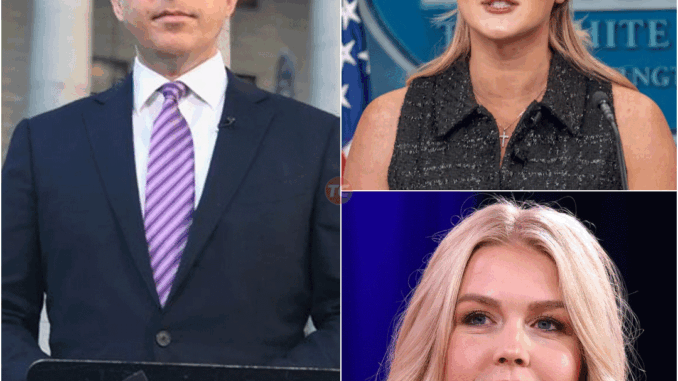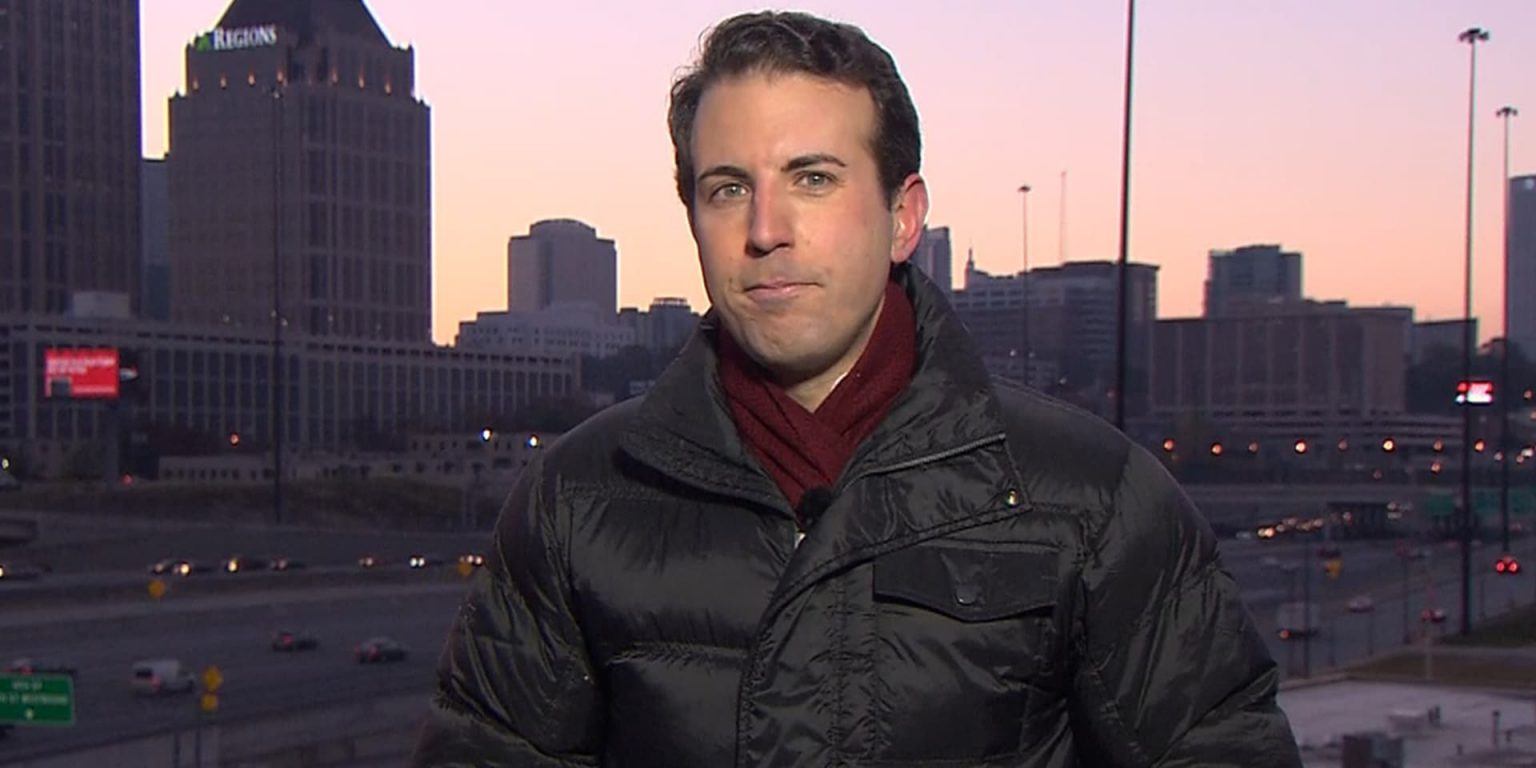
Leavitt Shuts Down Media Critics in Fiery Immigration Briefing
In a high-stakes White House press briefing that quickly turned combative, Press Secretary Caroline Leavitt found herself sparring with MSNBC reporter Gabe Gutierrez over the Trump administration’s immigration policies—most notably, the deportation of foreign nationals linked to violent criminal organizations. What unfolded was not just a clash over policy, but a political showdown that cemented Leavitt’s image as a no-nonsense communicator unafraid to push back on hostile media narratives.
Confrontation Ignites Over Deportation Disclosures
The briefing began with routine questions, but Gutierrez, known for his aggressive style, wasted no time targeting the administration’s handling of immigration. Focusing on deportations to El Salvador, he zeroed in on the removal of Albergo Garcia—a figure linked to the MS-13 gang and accused of human trafficking. Gutierrez pressed Leavitt on why similar deportation information had not been publicized, hinting at political motivations or potential legal missteps.
Leavitt, prepared and composed, immediately drew a line between Garcia’s case and routine immigration proceedings. “These are counterterrorism operations,” she emphasized. “We’re not talking about everyday removals. We’re talking about foreign terrorists—people who pose a threat to national security.” She distinguished such cases from those involving undocumented immigrants with criminal records, pointing out that Garcia’s background made him a matter of national security, not just immigration enforcement.
Gutierrez’s Pressure Backfires
Unwilling to let the issue go, Gutierrez shifted tactics, invoking a federal judge’s reported frustration over deportation order compliance and suggesting that Trump administration officials might face contempt rulings. It was an attempt at a “gotcha” moment—one designed to trip up Leavitt and generate headlines.
But Leavitt didn’t flinch. “We are complying with all court orders,” she said crisply. “The president made that clear yesterday in the Oval Office.” She then laid out a concise legal explanation of the administration’s actions, reinforcing their legitimacy. Gutierrez’s attempt to frame the administration as reckless or defiant of the law had no traction.
The MS-13 Flashpoint
The exchange intensified as Gutierrez returned to the Garcia case, implying that the deportation was politically driven and possibly unjust. The suggestion struck a nerve—not only with Leavitt but with a public that has grown increasingly weary of media framing.

Leavitt’s response was swift and unequivocal. “There is no world in which someone like Garcia, a foreign terrorist and MS-13 member, will be allowed to live a peaceful life in Maryland,” she said. She went on to recount Garcia’s alleged involvement in human trafficking, his criminal affiliations, and his illegal reentry into the U.S.
“He is not a victim,” she continued. “He is a criminal who engaged in the most barbaric activities in the world. And for people to continue defending him is appalling. It’s the height of hypocrisy.”
The room fell silent.
Leavitt’s Defining Moment
What set Leavitt apart wasn’t just her ability to dismantle media narratives—it was her calm confidence while doing it. When pressed further about who ultimately authorized Garcia’s deportation, Leavitt pointed to Salvadoran President Nayib Bukele, who had refused to block the transfer.
“President Bukele is not going to smuggle a foreign terrorist back into the United States of America,” she declared.
The remark landed with force. The implication that even Garcia’s home country had no interest in defending him undercut the argument that the U.S. was overstepping its bounds.
But Leavitt wasn’t finished.
“It’s truly striking to me that so much time has been spent covering a gang member and human trafficker when there are far more pressing issues to focus on,” she added, ending the exchange with a pointed rebuke that left the press room in stunned silence.
Stephen Miller Weighs In
As tensions simmered, senior advisor Stephen Miller entered the fray with his own response. Known for his hardline immigration views, Miller echoed Leavitt’s stance, criticizing what he called the “arrogance” of the American media in trying to dictate foreign policy outcomes.
“This is about keeping Americans safe,” Miller said. “He’s a foreign terrorist. We followed the law. Full stop.” His remarks further shifted the narrative, portraying the administration not as defensive, but as resolute and focused on national security.
Miller emphasized that Garcia’s deportation wasn’t an isolated act but part of a broader strategy to protect American communities from violent transnational gangs like MS-13. His remarks were measured but firm, signaling unified support from within the administration.
A Final Blow on Biden
The briefing concluded with a pivot to domestic politics. When a reporter asked about President Biden’s upcoming speech on Social Security, Leavitt didn’t miss a beat. “We’ll see if he makes it past his bedtime,” she quipped—a jab at Biden’s age that drew both laughter and headlines.
While critics slammed the remark as inappropriate, supporters praised it as a bold rhetorical move that underscored Leavitt’s sharp instincts and refusal to play defense.
Conclusion: Leavitt’s Moment of Ascendancy

Caroline Leavitt’s command of the briefing room was more than a communications victory—it was a political milestone. Her performance blended legal clarity, political savvy, and unshakable composure, transforming what could have been a hostile media ambush into a moment of strength for the Trump administration.
Leavitt successfully reframed the narrative, repositioning the White House not as evasive or aggressive, but as committed to national security and unapologetically protective of the American people. By the time reporters left the room, there was no question: she had dominated the exchange.
What’s Next for Leavitt?
With this latest performance, Leavitt has emerged as a rising star in Republican politics. Her ability to handle high-pressure confrontations, deliver decisive messaging, and steer national conversations shows that she’s not just a press secretary—she’s a political force in her own right. Whether she remains behind the podium or steps into a larger public role, one thing is clear: Caroline Leavitt has arrived.















